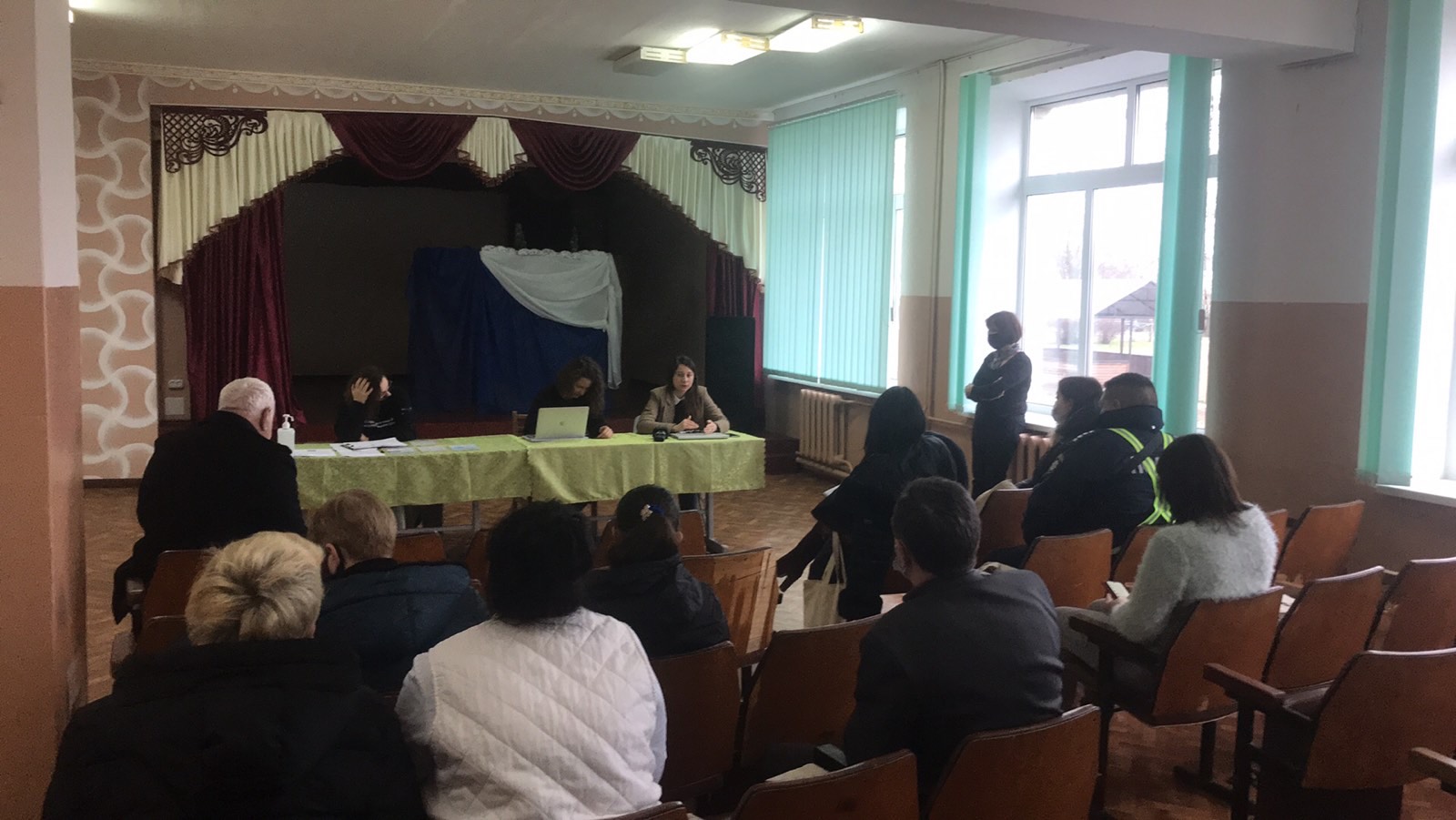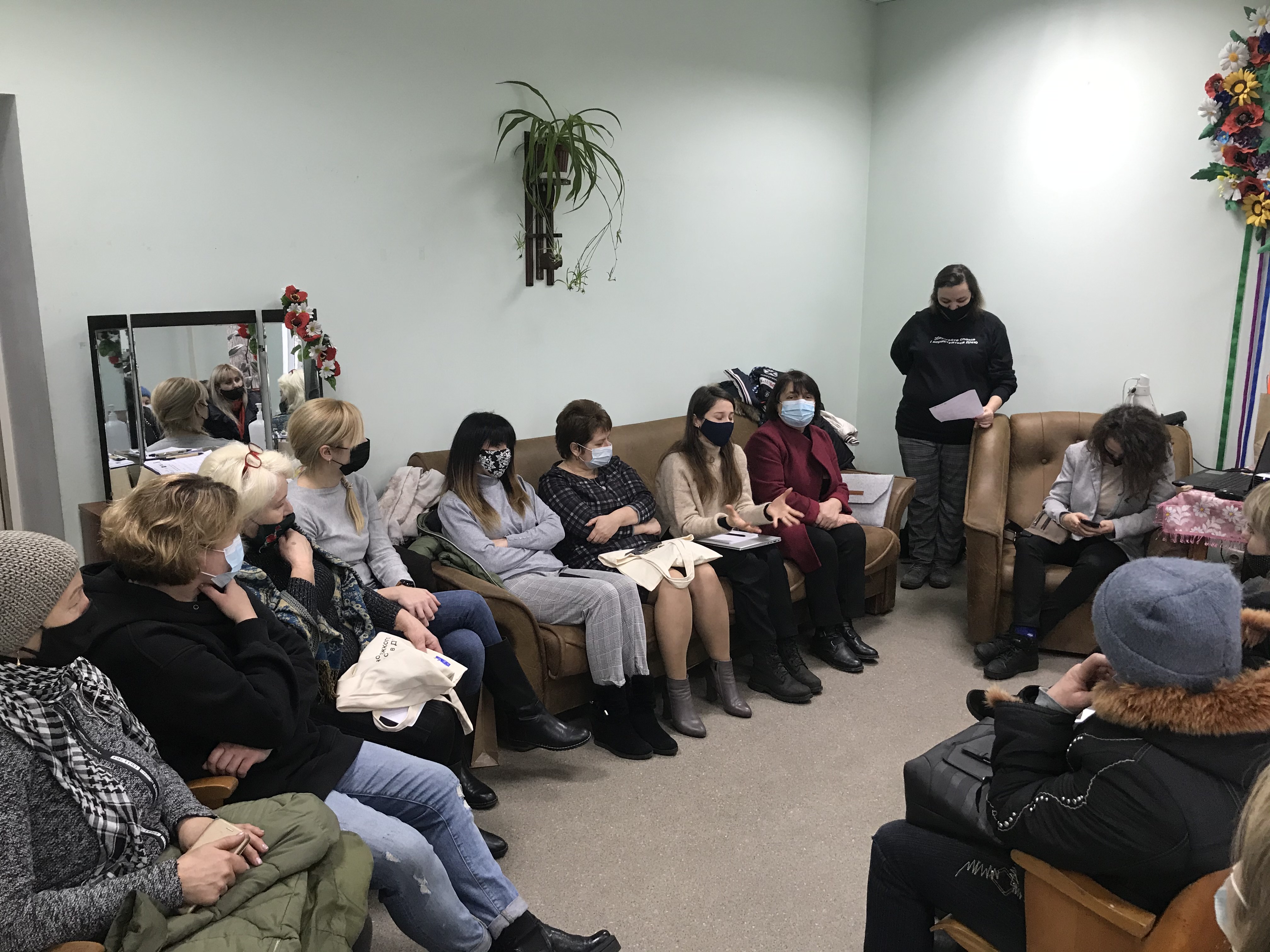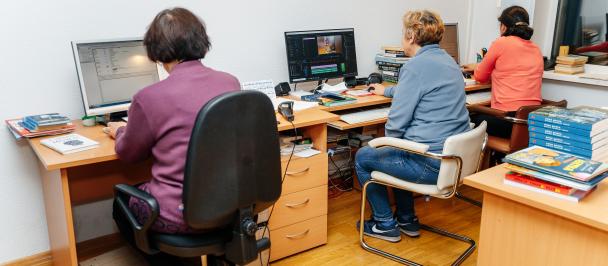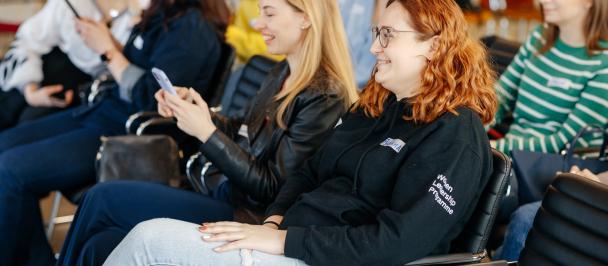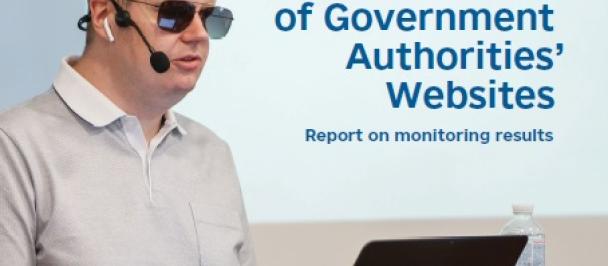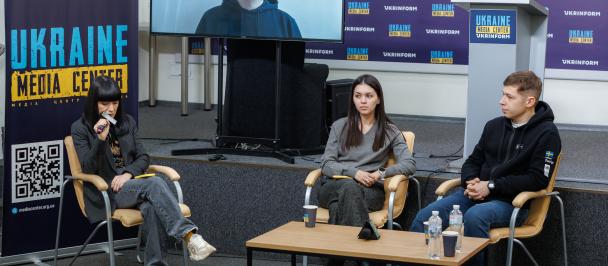Over three days, ministry representatives met with the residents of nine populated areas in Kirovohrad oblast.
Photo: Ievhen Hurnyckyi / UNDP in Ukraine
Kyiv, 21 December 2021 – Representatives of the Ministry of Digital Transformation of Ukraine and the United Nations Development Programme (UNDP) visited nine communities in Kirovohrad oblast and talked to local residents about their experience in using e-government services. In 14–16 December, they visited three communities in the oblast: Kompaniivka, Velyka Severynka and Novoukrainka. Among other things, they met with the locals of the villages and towns of Kompaniivka, Poltavka, Rozdollya, Novoukrainka, Zvirivka, Maryanopil, Velyka Severynka, Osytnyazhka, and Sozonivka.
Sharlotta Khmelnytska, a representative of the Directorate for Electronic Services Development of the Ministry of Digital Transformation of Ukraine, told the participants about the digital services that are available on the Diia portal and mobile application, as well as about the projects the ministry is implementing. In particular, she answered questions about which electronic documents one needed in order to use the comprehensive eMaliatko (I have a baby) service, to download COVID certificates in Diia, as well as about the one-teacher-one-laptop initiative.
The Ministry of Digital Transformation is also implementing an Internet subvention project to connect villages and towns to fibre optic Internet, she said, urging the communities to take advantage of the digital opportunities and the initiatives launched by the ministry.
“E-services are convenient, as people can use them online, without having to leave their houses,” said Khmelnytska. “The philosophy of the Ministry of Digital Transformation is that the state should make people’s lives easier, rather than making their lives more difficult by requiring them to produce additional certificates. Therefore, we aim to transfer 100 percent of public services online and to provide 95 percent of transport infrastructure, populated areas and their social facilities with access to high-speed Internet by 2024. We are moving gradually – the Internet, digital education – so that people can use the digital services created by the ministry and the Diia state enterprise.”
The Ministry of Digital Transformation recently presented seven new social and pension services, which have recently become available on the Diia platform, the spokespersons said. These include applying for housing subsidies, pensions, or pension recalculations, obtaining ОК-5 and ОК-7 certificates of insured persons, a pensioner income certificate and an excerpt from the Register of Insured Persons of the State Register of Mandatory State Social Insurance. The services were developed as part of the DIA Support project. The spokespersons told those present how to use social services and discussed problems that could arise when obtaining these services.
The visit of the representatives of the Ministry of Digital Transformation to the remote communities that are rarely visited by central government representatives was an attempt to create a direct communications channel between the ministry, the local institutions that directly implement digital transformation in these communities, and the users of these services to make sure their problems have been heard, said Iryna Kupchynska, a Community Liaison and Outreach Associate at the DIA Support Project, which is being implemented by UNDP in Ukraine with financial support from Sweden. Obtaining e-services is directly related to the level of one’s digital skills and knowledge, she said, and spoke about the educational opportunities of the Diia.Digital Education platform.
“The Diia.Digital Education platform has various training courses – from basic ones that teach how to connect to the Internet, use a computer and ensure digital security, to specialized ones: for civil servants, teachers, doctors, on the basics of artificial intelligence and future digital professions,” said Kupchynska, encouraging people to use the created educational online resources.
The meetings were also attended by Viktor Zhuchenya, regional coordinator for public relations of the Ukrainian parliament’s Commissioner for Human Rights in Kirovohrad oblast, who gave advice on how to protect one’s digital rights; and by representatives of the Success Territory, the NGO that organized meetings with the communities.
Background
The meetings with people took place as part of the “Support to the Digitalisation of Public Services in the Communities in Mykolaiv and Kirovohrad Oblasts” Project, which is being implemented by the Ukrainian “Network of the CSO hubs,” an association of civil organizations. The project, which was launched in September 2021, covers two oblasts: Kirovohrad and Mykolaiv. It mainly aims to raise awareness and study the views of the residents of remote communities and vulnerable groups on e-services and digital transformation in the country.
Earlier, the project organised meetings of government officials with community representatives, focus groups involving government officials and vulnerable groups, and surveyed community residents on their use of electronic services. Based on the results of the above actions, civil activists collected the wishes and needs of local communities regarding their use of electronic services.
The initiative is being undertaken with support from the DIA Support Project, which is being implemented by UNDP in Ukraine with financial support from Sweden.
Media inquiries:
Yuliia Samus, Communications Team Leader, UNDP in Ukraine, yuliia.samus@undp.org or +38 097 139 1475

 Locations
Locations